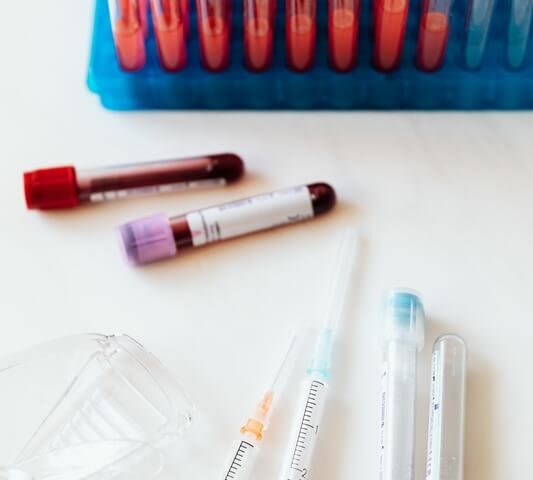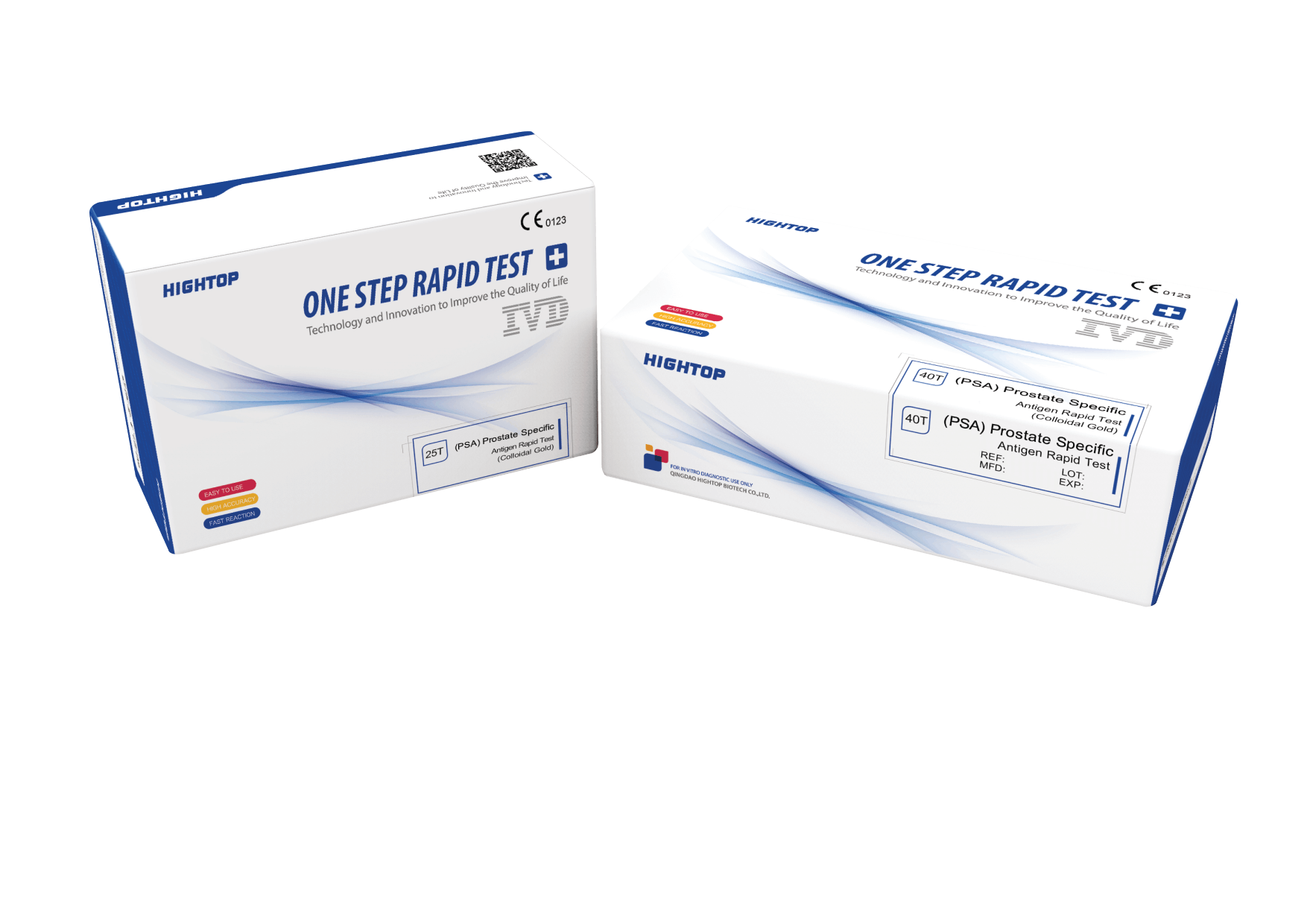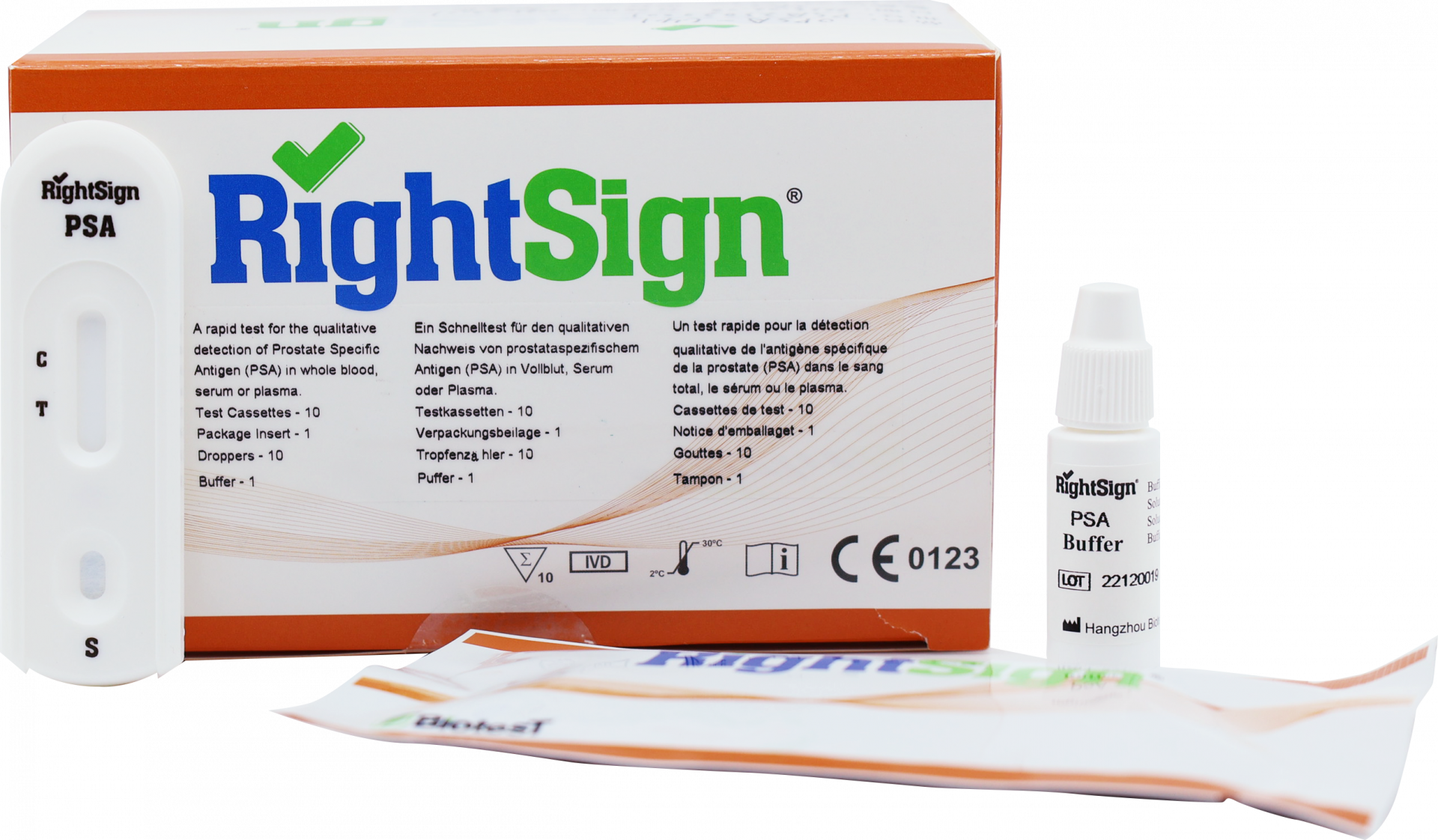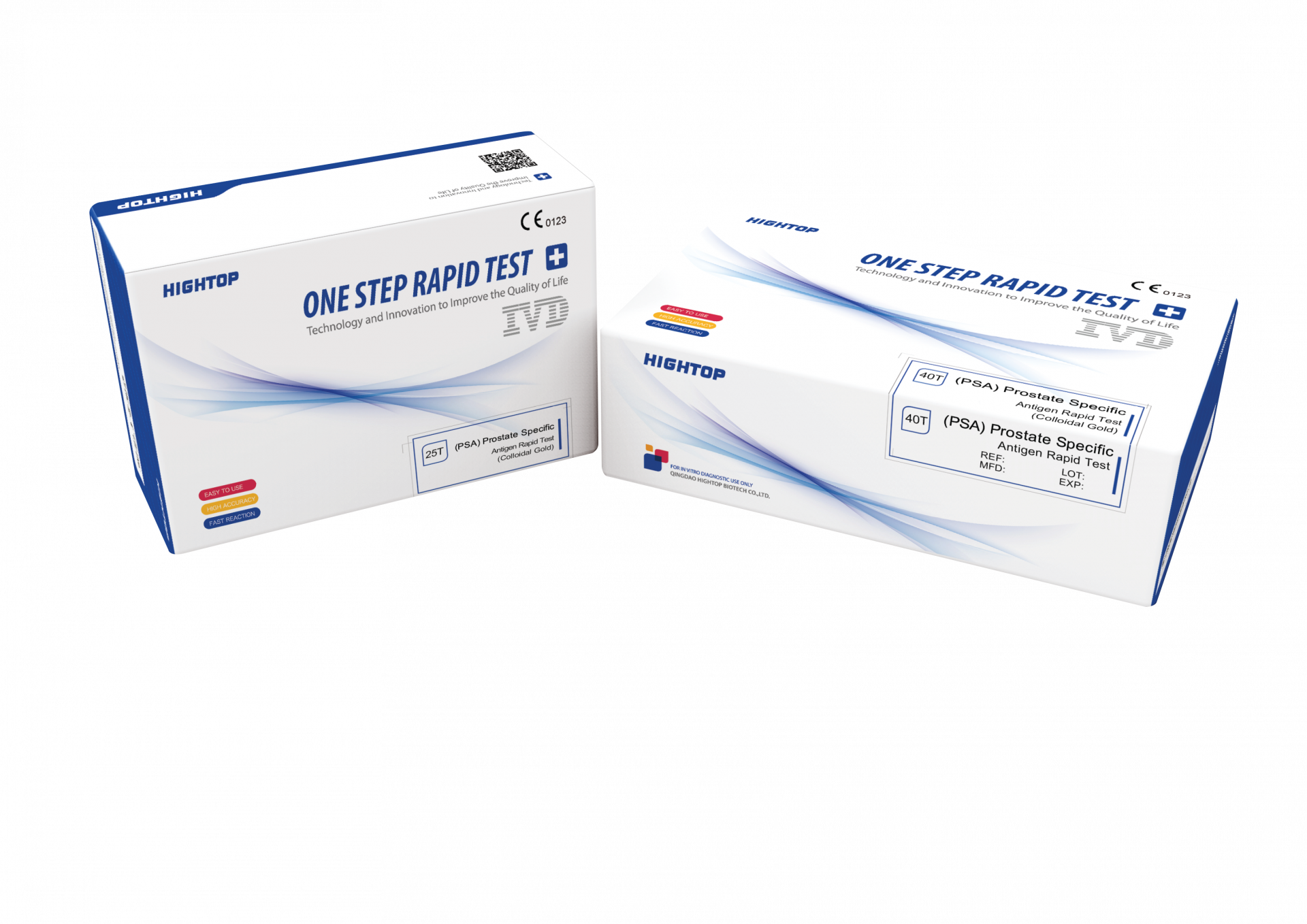Buy PSA Tests
Our PSA tests at OdemShop provide a reliable method for early detection of prostate cancer. They are an important tool for men to monitor their health.
Why the PSA Test is Beneficial for Early Detection of Prostate Cancer
The PSA screening (Prostate-Specific Antigen) is a blood test used to identify specific markers for prostate cancer. It is particularly recommended for men aged 45 and older. The test can aid in the early detection and treatment of cancer, as well as the early identification of recurrences, thus improving the chances of a cure. The PSA test can be a vital component of the early detection process and save lives.
PSA Test and PSA Screening: Procedure
The PSA test is an examination aimed at detecting prostate cancer, the most common cancer in men. This test measures the level of prostate-specific antigen (PSA) in the blood. PSA is a protein that enters the blood in small amounts and can be detected in elevated levels, especially in cases of cancer or benign prostate enlargement.
Although the test can play an important role in the early detection of prostate cancer, it also has drawbacks. An elevated PSA level is not exclusively indicative of prostate cancer but may also indicate benign prostatic hyperplasia or inflammation. In addition, the test can lead to the detection and overtreatment of benign or non-aggressive tumors, which can result in unnecessary treatments and side effects.
Another important consideration when performing the PSA test is each man's individual risk profile. Factors such as the patient's age, family risk, and symptoms should be factored into the decision to perform the test. According to the German Society of Urology, the test is not generally recommended for men without suspected prostate cancer.
There are differing opinions among medical societies regarding the PSA test. While the German Society of Urology advocates the test in certain cases, the Institute for Quality and Efficiency in Health Care (IQWiG) questions the cost-effectiveness and benefit of the test. The PSA test is also not included within the statutory cancer screening program.
Despite its advantages and disadvantages, the PSA test remains an important tool in urology. In addition to the PSA test, there is also the digital-rectal examination, in which the physician palpates the prostate with his finger. However, this examination alone is less sensitive than the combination with the PSA test.
Ultimately, the decision for or against a PSA test should always be made in consultation with the treating physician and in consideration of the individual risk profile and the advantages and disadvantages of the test. In the case of an abnormal finding, it is important to carefully consider the next steps and to individually adjust the treatment of prostate cancer if necessary.
Benefits of the PSA Test
The PSA test can aid in the early detection of prostate cancer by indicating abnormal values that may signify a potential problem. It can also assist in diagnosing and monitoring existing prostate conditions.
The PSA test offers several advantages, such as reducing the risk of developing the disease, enabling early treatment, and reducing tumor growth. However, it also carries a high risk of false alarms, misdiagnosis, and costly examinations. European studies demonstrate that even with all the drawbacks, the test presents a great opportunity to detect life-threatening diseases early and provide targeted treatment. Consequently, it supports patients in decision-making and offers comprehensive information about prostate cancer and preventive measures.
Risks of a PSA Test
A PSA test can lead to false positive results that cause unnecessary anxiety and discomfort. A false positive test can also lead to some men receiving unnecessary treatments. Possible treatments include surgery, radiation therapy, and hormone therapy, all of which can have side effects.
Disadvantages of Prostate Cancer Early Detection
There are several disadvantages to consider in prostate cancer early detection. These include excessive testing, unnecessary treatments, potential side effects, and psychological burdens. If tests are conducted too early, there could be excessive testing that is unnecessary and increases costs. If a positive result is obtained, unnecessary treatments may occur, which can lead to potential side effects such as impotence, bleeding, and infertility. The psychological burden of a positive result can also be significant. Therefore, it is important for men interested in prostate cancer early detection to carefully weigh the risks and benefits.
The medical director of the National Comprehensive Cancer Network says, "Early diagnoses for cancers that are not metastatic and not serious without treatment may cause more harm than benefit." This overdiagnosis costs time and money as tissue samples are taken, and further tests are conducted to establish the correct diagnosis. Furthermore, this approach also carries the risk of invasive procedures such as anesthesia, surgery, etc., which can significantly impact daily life.
Men from the age of 50 should regularly visit their doctor and undergo an examination. However, experts recommend that men from the age of 45 undergo a test for elevated PSA levels as part of the annual prostate cancer screening. This way, there is a chance of early detection and effective therapy or even cure, if indeed cancer is present. To understand the steps that need to be taken to prepare optimally, it is important to enter the next section: What can you do to prepare yourself?
To prepare, you can do the following:
- Learn the basics of the topic or subject you are dealing with.
- Stay updated on current trends and developments in your field.
- Create a plan to achieve your goals.
- Set short-term goals and plan regular steps to achieve them.
- Practice to improve your skills.
- Utilize online resources to educate yourself and learn.
- Engage in conversations with others who are working on the same topic.
- Familiarize yourself with concepts, rules, and best practices in your field.
- Find a mentor who can help you improve your skills.
Why the PSA Test is Beneficial for Early Detection of Prostate Cancer
The PSA test is a valuable tool for early detection of prostate cancer. It can help prevent metastatic cancer and reduce the risk of complications.
Metastatic cancer cannot be prevented, but you can reduce the risk of metastasis by detecting and treating the cancer early. In addition, a healthy lifestyle can help reduce the risk of cancer.
It's important for people to see their doctor and learn about all their options - especially if they're at high risk. With the help of the PSA test, you have the chance to take preventive measures against prostate-related diseases and thus positively influence your personal health risk in the long term as well as in the short term.
Where to buy PPE tests wholesale or from specialized distributors?
For buying PPE tests, you can also consider our online store, Odemshop. These stores offer a convenient way to order and receive PSA tests from home or business. At Odemshop, you can buy various diagnostics that come from leading manufacturers and are offered at affordable prices. With fast delivery and excellent customer support, Odemshop is an excellent choice if you want to buy your PSA tests wholesale or from a specialized distributor.
Conclusion
In conclusion, the PSA test is an important step in the early detection of prostate cancer. It can help confirm or eliminate the suspicion of cancer and start the right treatment. However, it should always be kept in mind that the test is only one piece of the diagnostic puzzle and additional tests may be needed to make an accurate diagnosis. It is also important to consider the risks associated with early detection, such as side effects of treatment interventions or overdiagnosis.
This is why it is so important to take the issue of prostate cancer seriously and seek regular medical checkups. Consulting with healthcare professionals can provide valuable guidance and personalized advice based on individual risk factors and medical history. By staying informed and proactive, individuals can make informed decisions about their healthcare and take necessary steps to protect their well-being.
For reliable and up-to-date information on prostate cancer and the latest scientific findings, it is recommended to consult reputable sources such as medical journals, research institutes, and trusted healthcare organizations.
FAQ's
What is a PSA test?
A PSA test is a medical test that measures the level of prostate-specific antigen (PSA) in the blood.
Why is a PSA test performed?
A PSA test is usually performed to detect signs of prostate cancer or other prostate-related conditions and confirm suspicions.
How is a PSA test conducted?
A PSA test typically requires a blood sample, which is examined in a laboratory.
How often should one undergo a PSA test?
The frequency depends on individual risk assessment. Generally, a PSA test is recommended for men aged 50 and above.
How accurate is a PSA test?
PSA tests are relatively accurate, but they can produce false-positive or false-negative results. It is important to follow the test instructions precisely and conduct further investigations in case of abnormalities.
How should I prepare for a PSA test?
Usually, no specific preparation is required. However, it is recommended to avoid certain foods or medications before the test.
What happens if my PSA test is positive?
A positive result does not necessarily mean you have prostate cancer. Further investigations, such as a biopsy, are necessary to determine the cause of the positive test.
Can a PSA test also be positive for other conditions?
Yes, PSA tests can also yield positive results if there are other causes, such as prostate inflammation.
Is a PSA test painful?
No, a PSA test is typically painless and only requires a blood sample.
You might also be interested in ;

PSA – Prostate Specific Antigen
PSA, or prostate-specific antigen, is an important indicator for the diagnosis of many male prostate diseases. It is critical that men have regular...
View Post
Positive Rapid Test / Coronal Test
A positive rapid test / coronal test is becoming increasingly important due to the increased spread of the COVID-19 pandemic. The test allows for...
Beitrag ansehen



